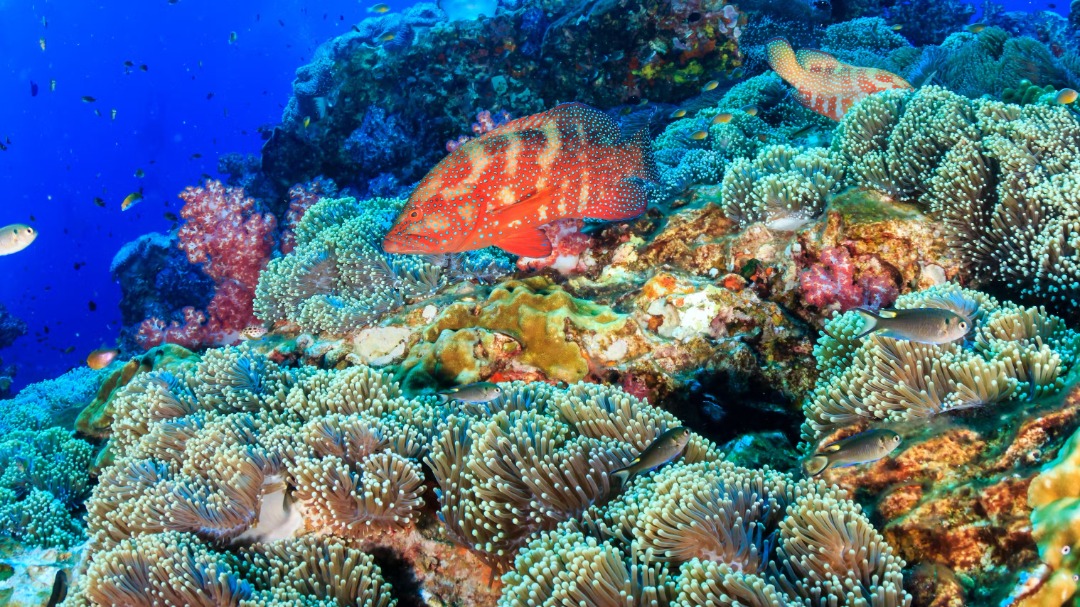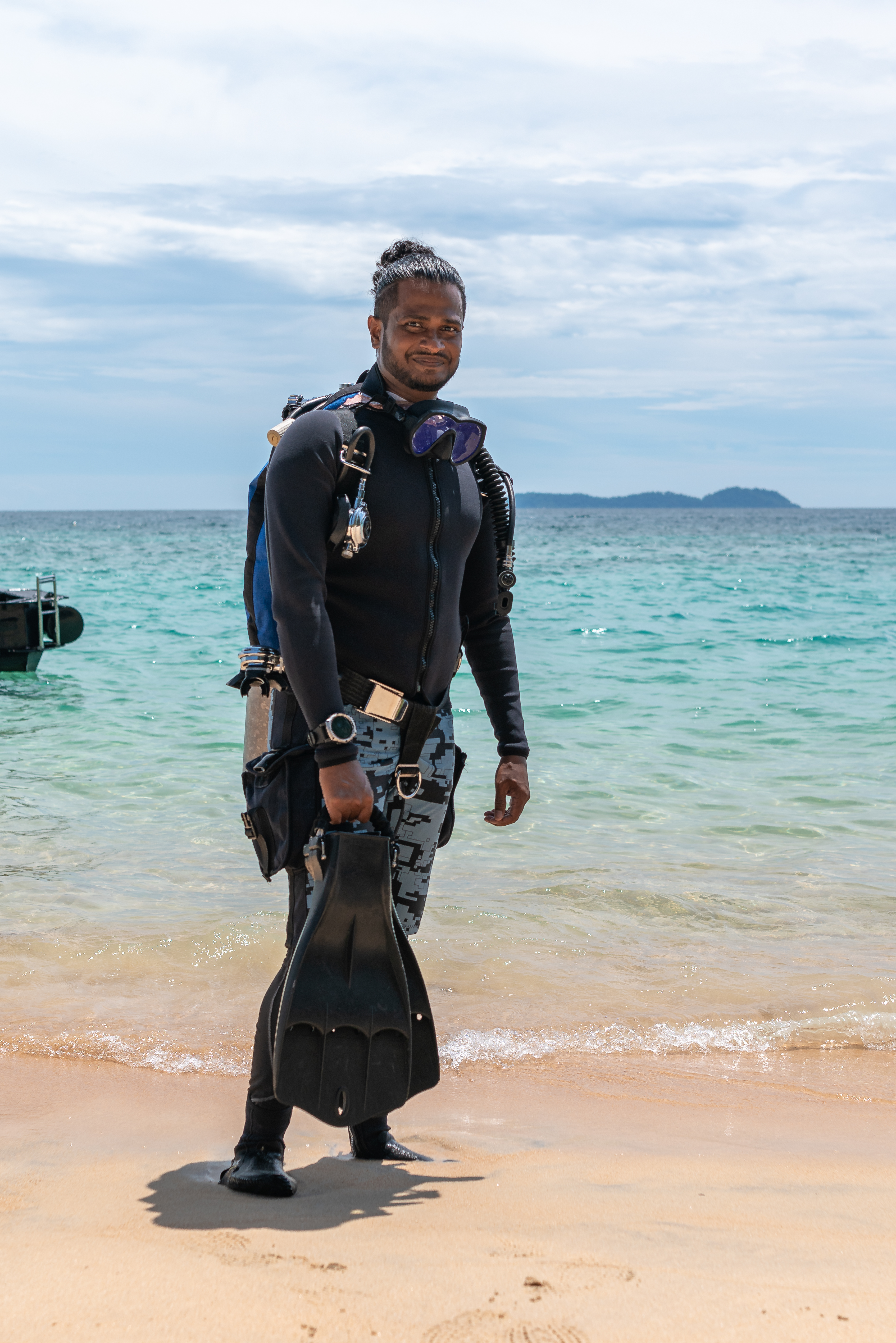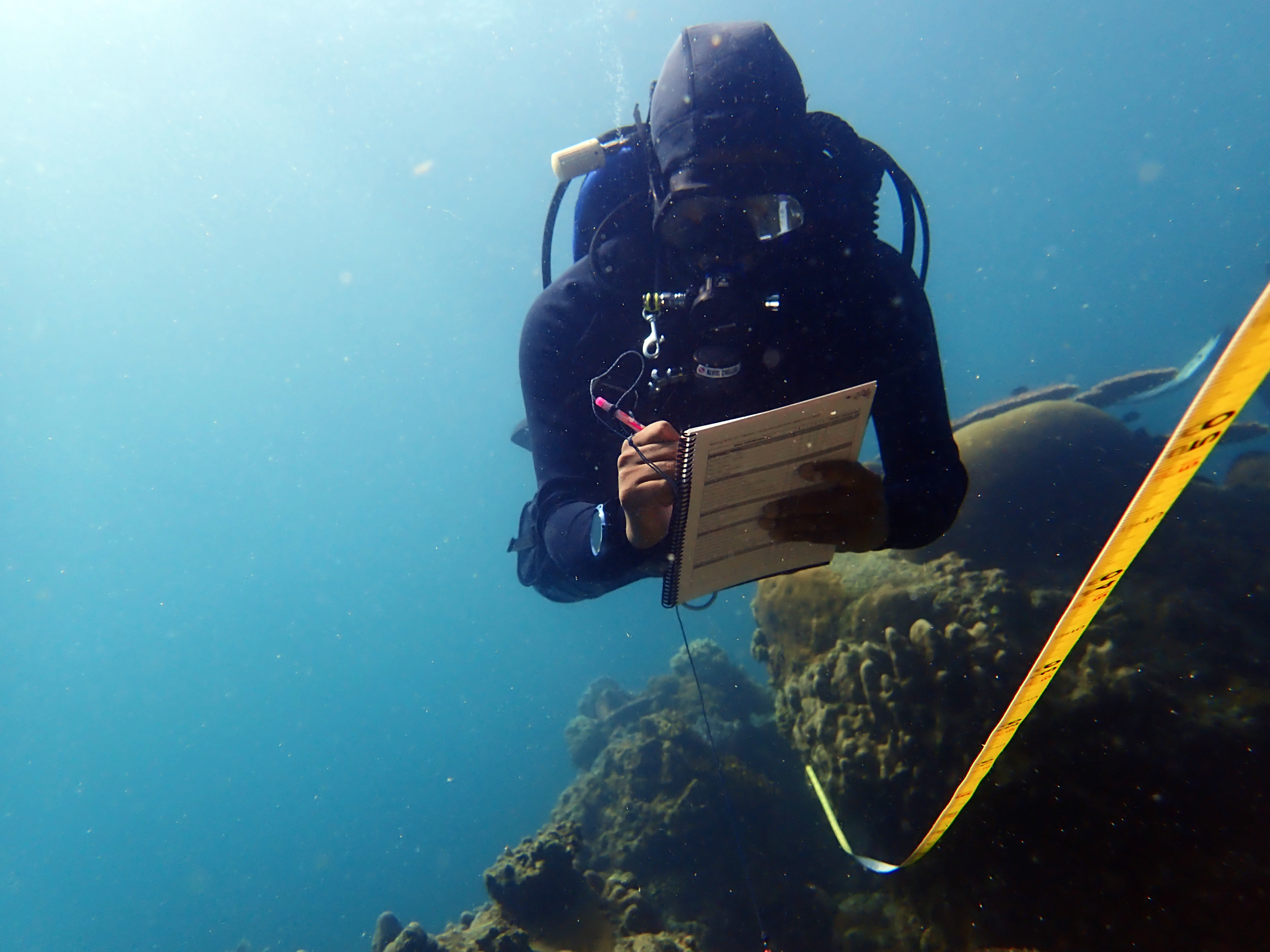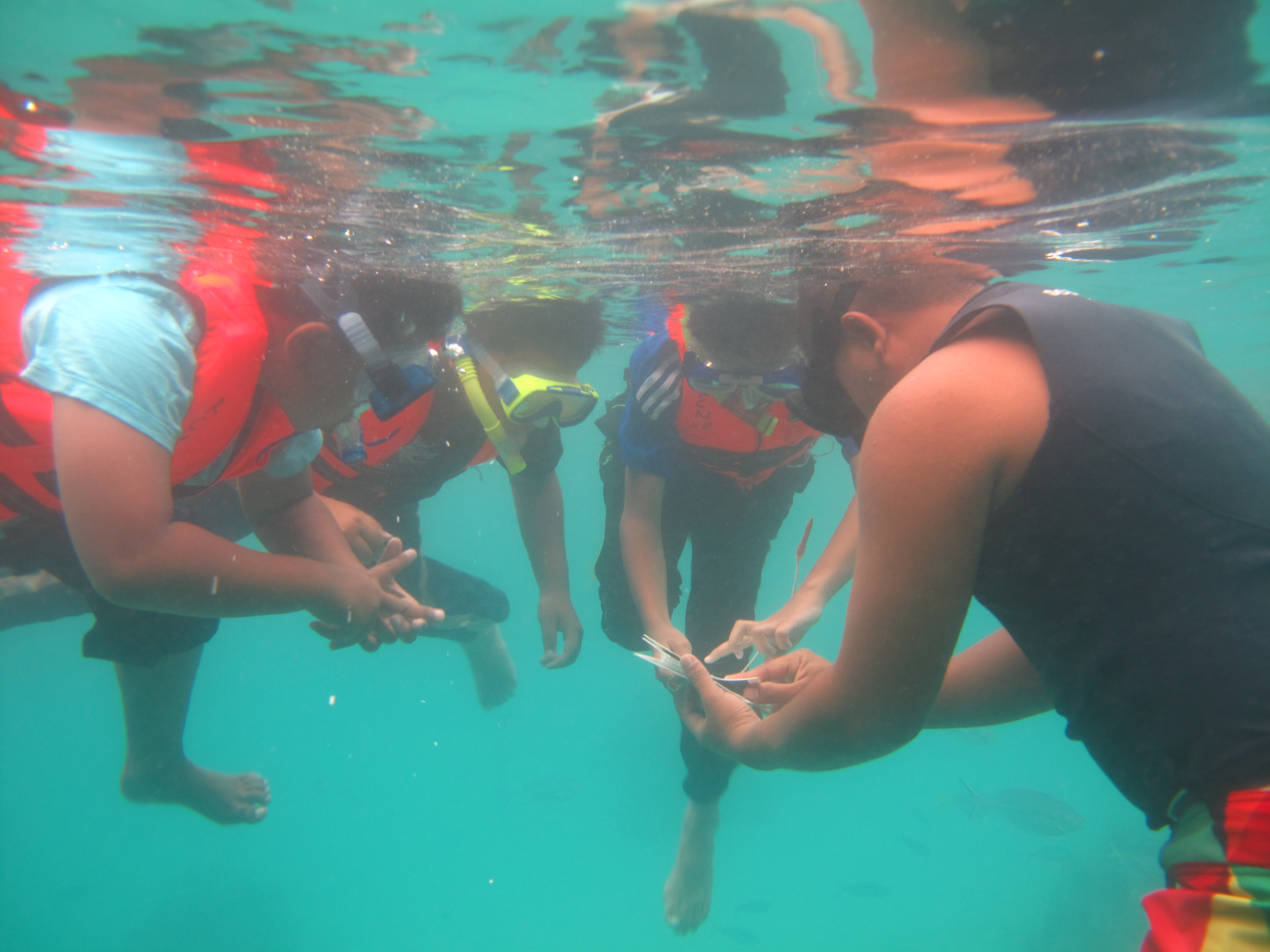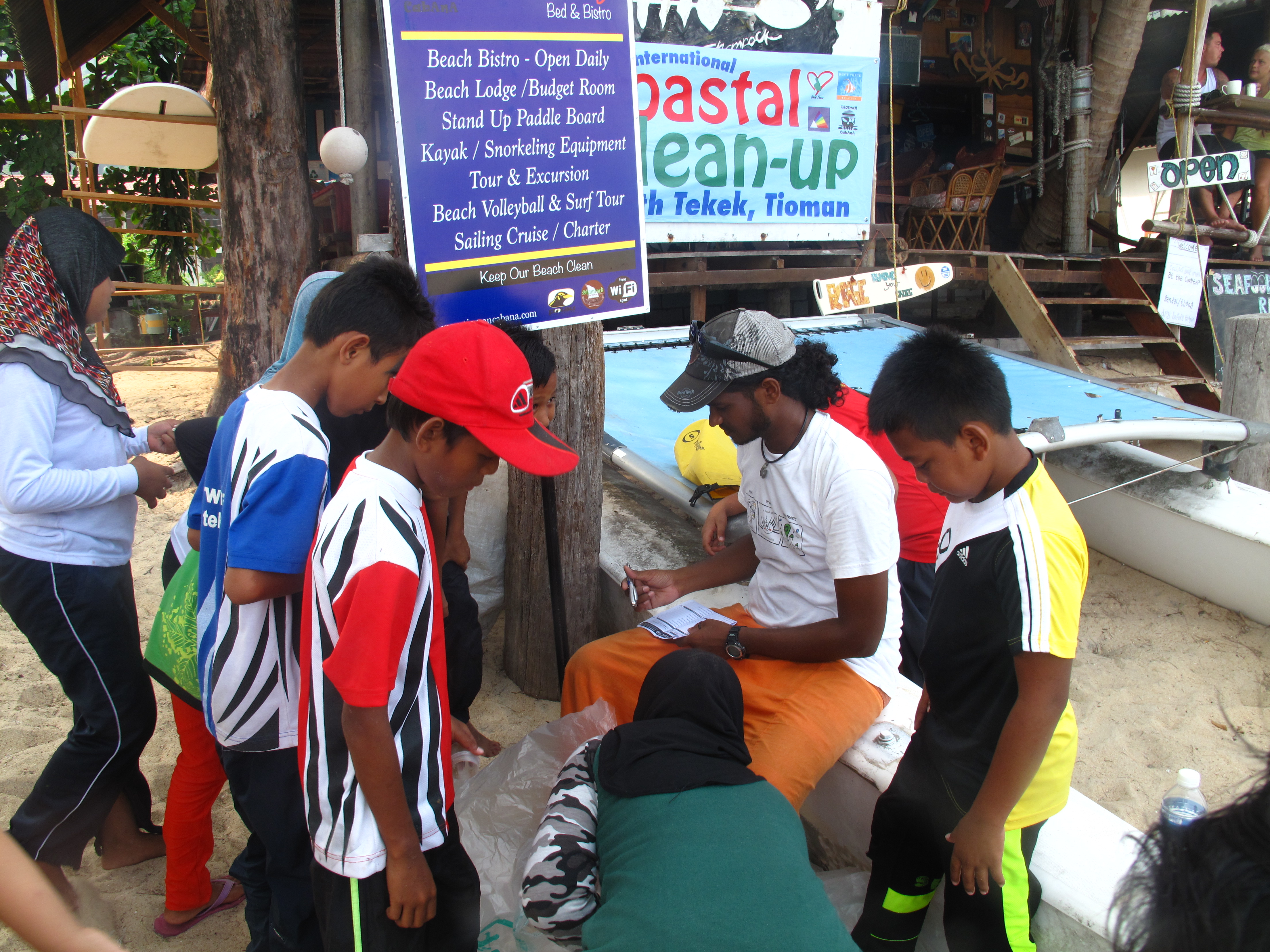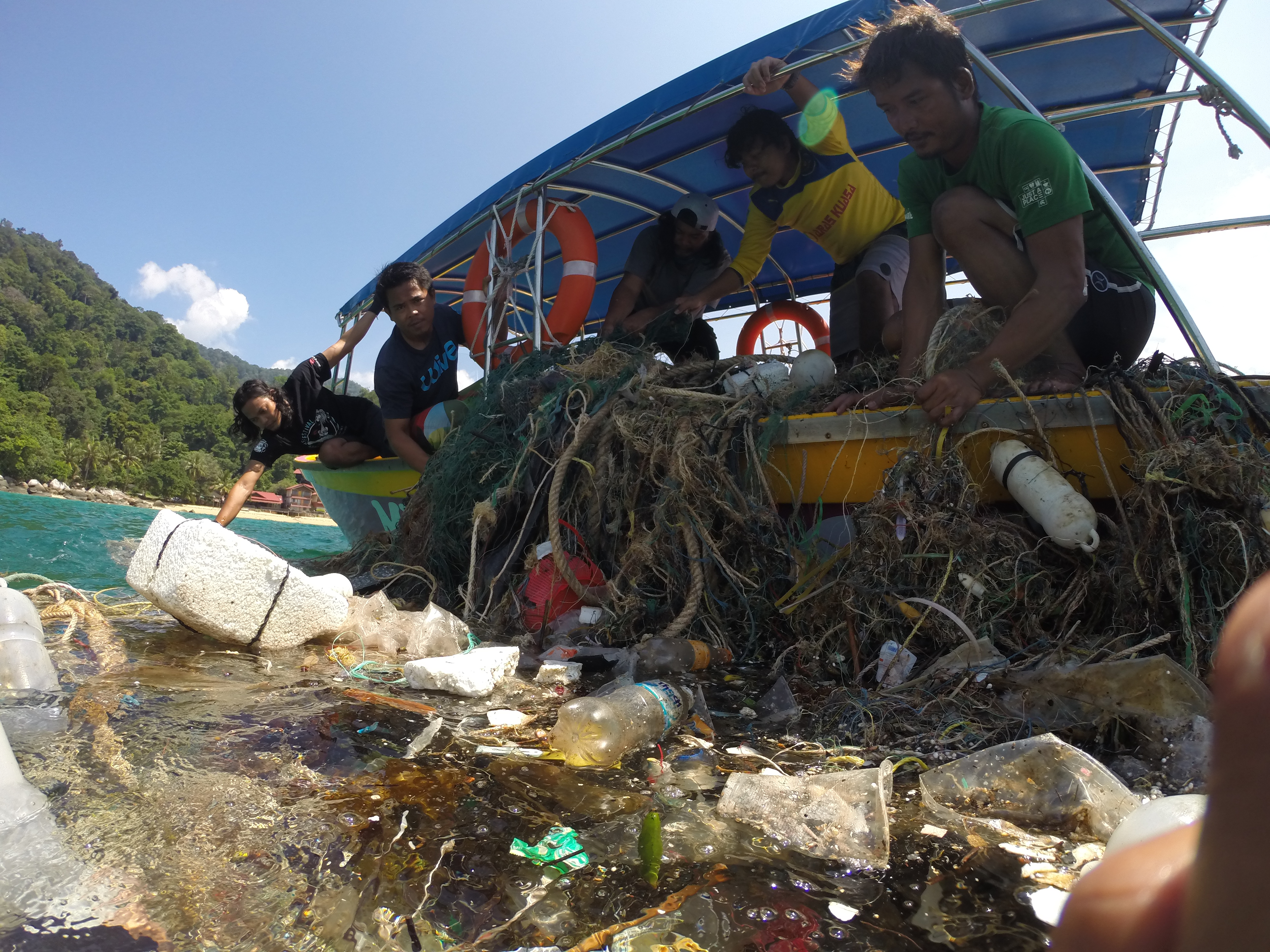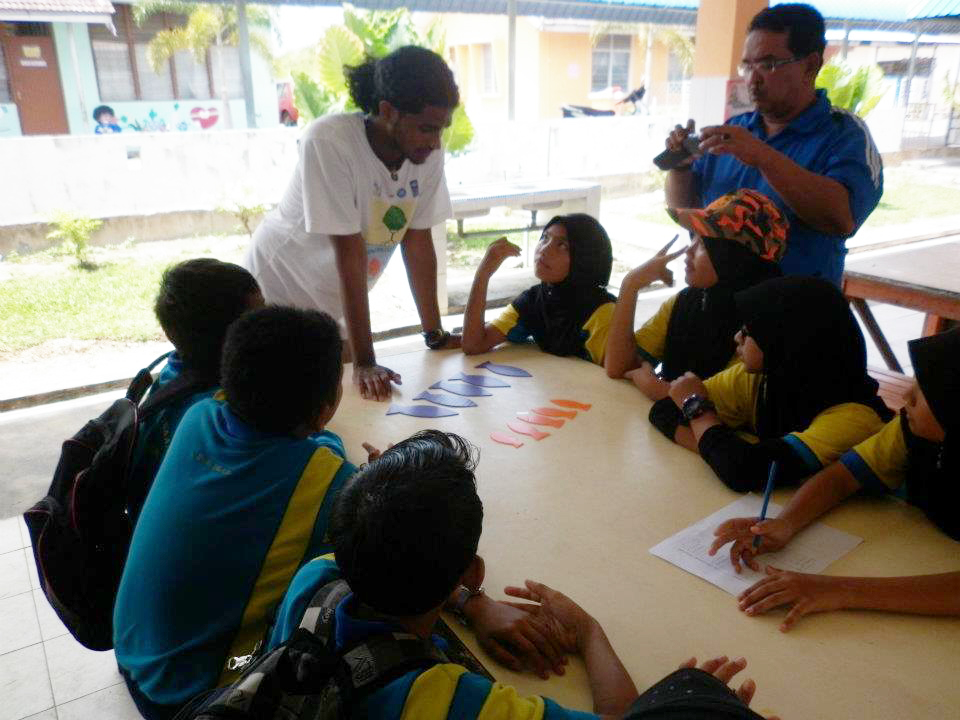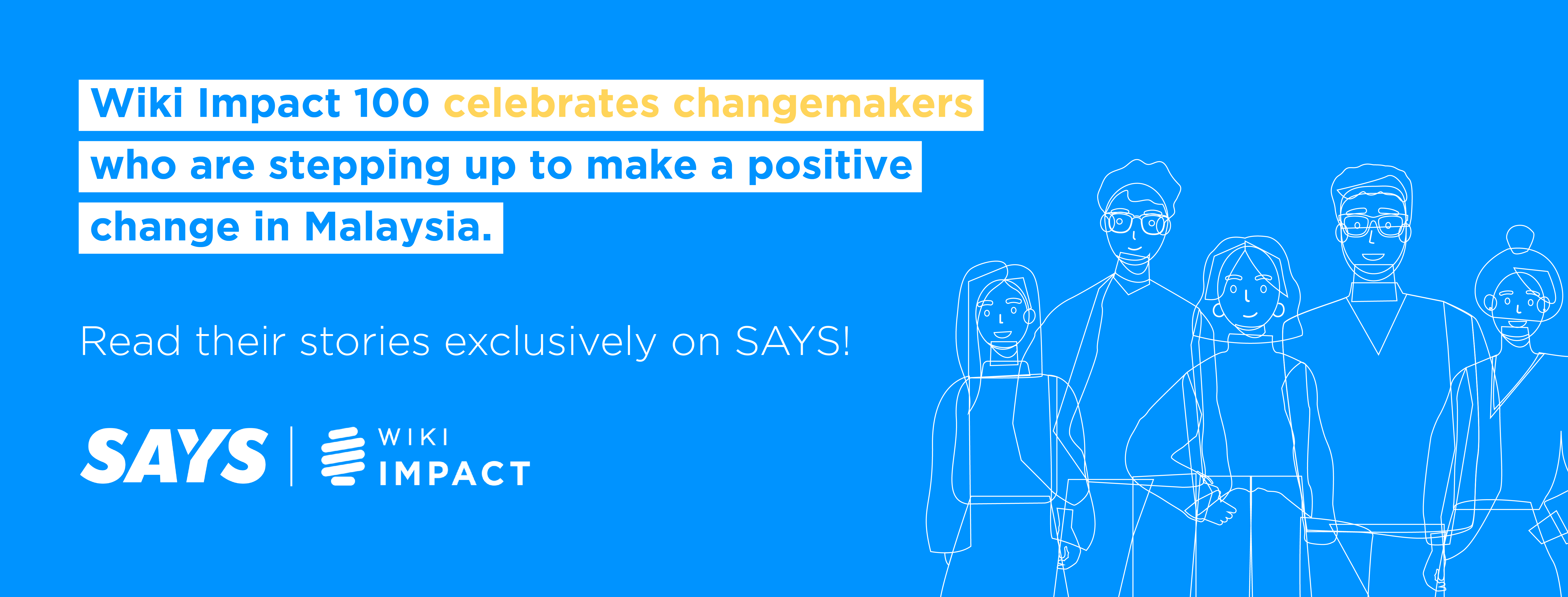Meet The Malaysian Marine Scientist Working To Preserve And Protect Tioman's Coral Reefs
Alvin Chelliah from Reef Check Malaysia is part of an initiative which looks at building social and ecological resilience on the picturesque island.
Did you know that coral reefs can only be found in less than one percent of our oceans, yet are home to nearly one-quarter of all underwater species?
Coral reefs, made up of tiny, individual corals called polyps, provide an important ecosystem for marine life. Teeming with an astounding richness of biodiversity, these living creatures (corals cannot generate their own food, and are therefore considered animals) are often referred to as the rainforests of the sea.
However, human activity remains the main threat to coral reef survival. Things like overfishing and warmer oceans are often responsible for everything from cascading effects on coral reef ecosystems (and the local economies that depend on them), to thermal stress that gives rise to coral bleaching and infectious diseases.
On the picturesque shores of Tioman, marine biologist Alvin Chelliah is part of a non-governmental organisation (NGO) who works to monitor and boost the resilience of coral reefs
Alvin, who hails from Kajang, started diving when he was only 15 years old. He found himself taken with the magnificent wonders of coral reefs, his fascination with them sparking a lifelong interest in underwater biodiversity.
This led to him earning an undergraduate degree in marine science from Universiti Malaysia Sabah in 2006, before a masters in the same studies in Universiti Kebangsaan Malaysia. It was during this period as a postgraduate student that Alvin volunteered with Reef Check Malaysia.
By the time he was done with his studies in 2011, the NGO had offered him a permanent position to monitor the health of coral reefs around the country, where he works alongside a team of scientists, local islanders, and other professionals.
As the senior programme manager of Reef Check Malaysia, Alvin is the driving force behind Cintai Tioman, an initiative which looks at building social and ecological resilience on the island
Reef Check Malaysia is part of an international NGO, present in about 90 different countries and territories around the world. Its work spans 220 sites with three main bases around the country — Tioman Island in Pahang and Mantanani Island in Sabah, as well as the Mersing group of islands in Johor.
Globally, the main thing that Reef Check does is monitor the health of coral reefs. Locally, where the 36-year-old is based on Tioman, the scope has evolved from much more than just conducting surveys.
"In Malaysia, we realised that we've done the surveys, we know what's going on, we kinda know what the threats are, so, what are we going to do about these threats now?," said Alvin in an interview with SAYS.
Having moved to the island in 2014 to spearhead Cintai Tioman, Alvin shared that the programme is currently focused on achieving a couple of specific goals
Getting Tioman Island Marine Park recognised under the IUCN Green List of Protected and Conserved Areas, a global benchmark for ways to meet environmental challenges of the 21st century, is one of them.
According to Alvin, the status would make Tioman Island the first site in Peninsular Malaysia to get such recognition. Once accredited, the island will not only be better protected but also adhere to international standards when it comes to any kind of development on the gazetted area, from construction projects to tourism activity, and more.
"For example, I'm not sure if you know, but there is a push to build a new airport in the marine park on Tioman Island... So, for these kinds of things, it would need a lot more scrutiny, a lot more impact assessments before it can be allowed to happen," the marine biologist explained.
Part of the work Alvin does also includes raising awareness through educational programmes in primary and secondary schools on Tioman, as well as empowering local communities to get more involved with the day-to-day management of coral reef conservation and management
A lot of the work Reef Check does requires scuba diving, which is why the NGO tends to use volunteers who are certified divers. Non-divers, including children, typically help out with easier tasks like beach clean ups.
Image via Alvin Chelliah (Provided to SAYS)Alvin shared, "It could be something like running a homestead or being a boat captain. The idea behind it is to improve their livelihood so that they do not need to depend on harvesting from the reef as much.
"Over the years, we've been training a lot of the local islanders to do conservation tasks as well — things like monitoring the health of coral reefs, removing ghost nets, installing mooring lights — you know, work which traditionally is done by the government.
"Now that we're seeing more and more islanders who are interested in getting involved with this... we want to get it institutionalised. We want the government to look at co-management, instead of just the government managing [alone], get the locals to co-manage it with them."
Alvin went on, noting that, "Internationally, [there's a realisation that] local communities should be involved in the process. It's very important to get their feedback. Overall, it would mean that management [of the island] would improve, because you are consulting with the stakeholders, not just doing things on your own, working in a silo."
Ghost net removal on Tioman. According to Alvin, "Ghost nets are basically fishing nets that have been discarded or lost at sea. These are a problem because as long as they're in the water, they're gonna keep catching and killing marine life."
Image via Alvin Chelliah (Provided to SAYS)It's no surprise that any kind of conservation effort often takes time to see its payoff.
Nonetheless, Alvin affirms that it is a responsibility he finds fulfilling.
"I think what I'm most happy with — and proud — would be the group of islanders that we've trained up over the years to do these different conservation-related work. We call them the Tioman Marine Conservation group, and we started training them in 2015.
"We started with about five people and over the years, we've trained about 69 people now. The latest ones who have joined us in the last couple of years, it's very nice to see them because these are the same kids we used to teach in our school programmes about 10, 11 years ago (before Cintai Tioman). It's like a full circle — taught them in school, and now they're actually involved with the work that we're doing," Alvin disclosed.
He added, "To me, this is what I'm most proud of because many of these islanders can now basically do almost everything that we are doing. And the idea is, that soon enough, they would be able to run stuff on the island, and Reef Check will not be needed anymore. We've got them registered as a company and they work closely with the Department of Fisheries, with the resorts, and with the dive shops."
As Reef Check's mission is to sustainably manage coral reefs, Alvin told SAYS that one of the ways everyday people like you and me can help is by getting educated on the issues and threats surrounding them
Alvin and his students during one of Reef Check Malaysia's school programmes.
Image via Alvin Chelliah (Provided to SAYS)First things first, understand that corals are living creatures and they have feelings too!
"The Malay word for coral is batu karang. So, we're calling it a rock, when corals are actually animals. This is why many people who come out to the islands, you see tourists doing things like standing on the corals, 'cause for them it's just a batu, it's just a rock. They don't understand that this is actually a living, growing animal," Alvin explained.
You can start to help by choosing resorts or other accommodations that have environmentally-friendly practices in place, as well as dive centres that are Green Fins Certified when visiting islands such as Tioman. Simple things like turning off the AC when you leave the room or refraining from feeding bread to fish in the sea (it disrupts their digestive systems and makes them sick) can go a long way too.
Alvin puts it best, "When you better understand reefs... and you understand the issues on the island, things like waste, wastewater, and energy, which on Tioman is produced by diesel generators, then you can make better or more informed decisions."
All this month, SAYS will be featuring inspiring stories of extraordinary Malaysian changemakers in collaboration with Wiki Impact
Wiki Impact is an online platform dedicated to the impact industry. They share stories and data on issues that matter, highlighting impact-driven organisations and change-makers on the ground. Categories include poverty alleviation, social justice, gender equality, healthcare and education for all, environmental sustainability, animal welfare, impact influencers, and more!
Find out more here.
